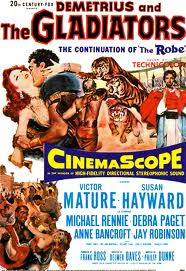Sensibly released
during the Christmas and Hanukah exchanging of gifts, “Joseph: King of Dreams,”
released in 2000, undeniably will be on the shelves forever. The first
direct-to-video animated movie from DreamWorks, this is a follow-up – or, if
you like to call, a prequel – to the other Bible animated masterpiece, “Prince
of Egypt.” Joe Leydon stated in his review, “Unlike many similar small-screen
sequels from Disney, however, “King of Dreams” has just as much
cross-generational appeal as its predecessor, and doesn’t make the mistake of
skewing primarily toward moppets.” In other words: This is family entertainment
in the best meaning of the word, for many families will be ultimately thankful.
Leydon stated, “Fancifully
embellishing Biblical narrative, “King of Dreams” takes a respectful but hardly
reverential approach to dramatizing events described in the Book of Genesis.
(To preempt possible criticism, pic begins by acknowledging “artistic and
historic license has been taken.”)”
At the time according
to screenwriters Eugenia Bostwick-Singer, Raymond Singer, Joe Stillman and
Marshall Goldberg, Joseph (Ben Affleck), the favorite son of Judah (Mark
Hamill) is sold into slavery by his jealous half-brothers (Tom Virtue, Steven
Weber, Jeff Bennett, Jess Harnell (who also voiced Wakko from "Animaniacs") and Matt Levin), and taken from the fertile mountain
of Canaan to faraway Egypt.
Sold to Potiphar (James
Eckhouse), captain of the Pharaoh’s (Richard McGonagle) guard, Joseph proves to
be a hard-working and capable servant. Unfortunately, Joseph also gets an eye
from Zuleika, voiced by Judith Light, Potiphar’s skinny wife. When he refuses
her romantic offers, she lies that results in putting him in jail. Joseph does survive – and succeed
– through his truly tested belief in God, and his innate ability to interpret
dreams.
Leydon said, “Although
“King of Dreams” largely downplays the religious elements that loomed so large
in “Prince of Egypt,” the vidpic stops far short of secularism. Indeed, the
best of the songs by John Bucchino, “Better Than I” and “What Road Lies at Your
Feet,” are unabashedly soaring anthems that accept and celebrate the divine. Both
tunes have potential to become standards for both mainstream entertainers and
Christian music performing artists.”
Directors Robert
Ramirez and Rob LaDuca effortlessly combine a variety of animation styles,
running the scale from Vincent Van Gogh-influenced dream scenes to
computer-generated graphics in a pretentious nightmare.
Leydon credits, “Among
the well-cast vocal talents, Ben Affleck makes a thoroughly persuasive and
aptly compelling transition from feckless youth to wise adult as Joseph, while
Jodi Benson (of “Little Mermaid” fame) hits the right notes of girlishness and
seriousness as Asenath, Joseph’s eventual wife, who encourages her husband to
forgive the trespasses of his half-brothers.”
Leydon goes on to say, “Chief
among the extra features offered in the DVD edition of “Joseph: King of Dreams”
is an “outtakes” section that will be of interest to movie buffs and animation
aficionados who might wonder how pics evolve from the drawing-board stage.”
Leydon continues, “Co-directors
provide storyboard illustrations and interesting commentary as they explain why
they plotted, then discarded, a seriocomic depiction of the newly enslaved
Joseph’s arrival in Egypt.” Ramirez and LaDuca picked a more serious way,
heavily enhancing the final product of the scene that appears in the completed
movie.
In the end, if you
liked “Prince of Egypt,” then you should check this one out as well. I know
this is a direct-to-video film, but it’s still a good one to see. It’s short,
straight to the point, and actually tells the story in a quick, straightforward
way. There is not filler but does add a lot of the major points that were in
the Bible. Definitely see this one if you haven’t, I say it’s worth a watch.
Thank you for joining
in on my second entry of “Religious Epic Month.” Stay tuned tomorrow for a
review on two films that are equivalent to the James Bond series that I'm really looking forward to seeing.







